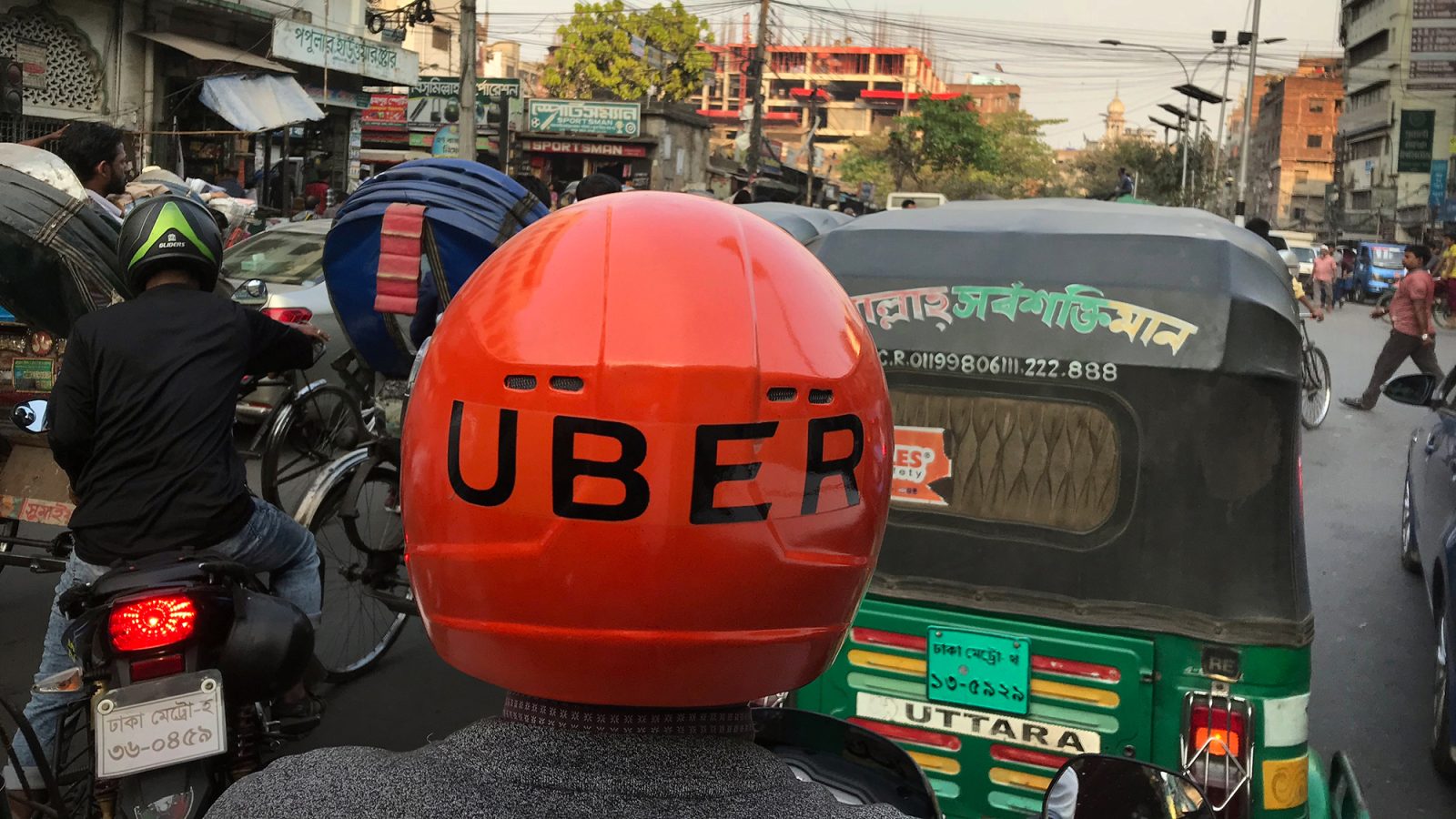Jitu Jisan is a Pathao bike-taxi driver in Dhaka. But, he said, taking bookings through the ride-hailing app is always the last resort for him. Typically, he uses the Pathao app only to find a customer, and once he meets them, he turns off the app, strikes a direct deal, and goes khep.
Khep is a popular colloquial term used for gig drivers bypassing platforms like Pathao and Uber in Bangladesh. In Bangla, khep translates to “side hustle.” “We’d rather khep than work on the apps. All the effort is from [the drivers’] end anyway,” Jisan told Rest of World. “The motorcycles are ours, the bills for petrol are ours, it’s our hard work. Platforms only help by getting us on the apps, and even for that, they’re charging a commission.”
Over 60% of respondents in an April 2023 survey of 59 commuters in Bangladesh said they had taken khep riders in 2023, according to a study conducted by a group of researchers associated with BRAC University in Dhaka. It is estimated that there were 7.5 million rides per month across the country in 2020, and earlier this year, the research director at Bangladesh Institute of International and Strategic Studies said that the ride-sharing market is the largest segment within the country’s gig economy, worth $259 million in 2023 and expected to grow to $1 billion in the next five to seven years.
read more: https://restofworld.org/2023/uber-commission-fees-bangladesh/



I’ve had a few drivers do this in the US and it has always been a huge cost savings. Uber gives a smaller and smaller cut the the drivers from what I’m hearing. I miss the early days when rides were cheap, driver kept the lions share of the fare and no one was expected to tip.
Yeah, but they only could provide that by burning a LOT of money in order to gain a monopoly and then squeeze everyone dry. Uber has always been a venture capital sham: https://pluralistic.net/2022/02/11/bezzlers-gonna-bezzle/
What I find fucked up in the first place, is how these business models don’t even work in the first place. Like why in the hell am I spending so much on a trip and it’s not even profitable in the first place.
Startup culture isn’t the most efficient. For example, back when Twitter still existed their iOS team had more than 100 people. I was an iOS developer back then, and I could easily have made a similar product alone (just the client, not the server). I don’t think that Tweetbot had more than one developer, and they produced much higher quality than that Twitter team.
Also remember that (former) Google employees who published a video about their work day, where they spent about 30mins for actual work and the rest was R&R.
That’s what made it good. Just because it’s not sustainable doesn’t mean it’s bad for the users. It’s the opposite. The problem is people who decided to hitch their lives on the app and be an Uber driver as a career. That was obviously not sustainable. And now people complain that it’s not profitable anymore. Time to move on
EDIT: downvoted for an anti-corporate opinion on Lemmy? Make up your minds!
You’re giving a descriptive explanation for a normative debate… or whatever is the one with the correct meaning.